 |
||||||||||
Updated: December 8, 2024
ITP: Immune Thrombocytopenia
Possible Connection to H. pylori
Platelets in Danger
 Immune thrombocytopenia (ITP) is a serious complication of CLL that affects a small percentage of patients. It is a condition in which the immune system destroys platelets. Research suggests that a common pathogen, Helicobacter pylori, can sometimes be the cause of ITP and that controlling and eradicating this infection can resolve ITP in its early stage. We discuss this and other characteristics of this condition in ITP: Immune Thrombocytopenia. (12/6/07)
Immune thrombocytopenia (ITP) is a serious complication of CLL that affects a small percentage of patients. It is a condition in which the immune system destroys platelets. Research suggests that a common pathogen, Helicobacter pylori, can sometimes be the cause of ITP and that controlling and eradicating this infection can resolve ITP in its early stage. We discuss this and other characteristics of this condition in ITP: Immune Thrombocytopenia. (12/6/07)
Infections: Who Is Most at Risk?
Prognostic Indicators Can Identify Infection Risk
Know Your Enemy
 Serious infections account for an alarming proportion of deaths among CLL patients.
But are some patients more at risk than others? What are the prognostic
indicators which can help you assess the risk of serious infections in your own case?
In
Who Is Most at Risk? we review a very recent article that looks
at the different risk buckets and provides some practical pointers to improve your
chances of staying out of the hospital.
Serious infections account for an alarming proportion of deaths among CLL patients.
But are some patients more at risk than others? What are the prognostic
indicators which can help you assess the risk of serious infections in your own case?
In
Who Is Most at Risk? we review a very recent article that looks
at the different risk buckets and provides some practical pointers to improve your
chances of staying out of the hospital.
Super Bugs: Staph
MRSA Is on the Loose
The Dangers of Drug Resistant Bacterial Infections
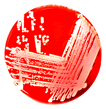 Recent reports prove that infections from strains of drug-resistant bacteria are far more prevalent than
previously thought, accounting for more than half of all skin infections treated in hospital emergency rooms.
Infectious diseases experts are trying hard to get the word out. While this poses a serious threat to public
health, CLL patients will do well to pay special attention to this phenomenon and take some precautions —
so that they may avoid these difficult and persistent infections which their systems are
ill-equipped to fight. Read about these super bugs in
The Dangers of Drug Resistant Bacterial
Infections.
Recent reports prove that infections from strains of drug-resistant bacteria are far more prevalent than
previously thought, accounting for more than half of all skin infections treated in hospital emergency rooms.
Infectious diseases experts are trying hard to get the word out. While this poses a serious threat to public
health, CLL patients will do well to pay special attention to this phenomenon and take some precautions —
so that they may avoid these difficult and persistent infections which their systems are
ill-equipped to fight. Read about these super bugs in
The Dangers of Drug Resistant Bacterial
Infections.
EBV
The Kiss that Can Kill
The Enemy Within
 The Epstein-Barr Virus (EBV) has long been known as a complicating factor in many cancers.
Recent research has shown just how serious is the threat posed by this virus in CLL. EBV
is estimated to be present in over 90% of adults in the western world, but is normally
kept in dormancy by active T-cells. Read
The Enemy Within to learn how EBV can interfere with normal T-cell
function and how T-cell damaging therapy with agents such as fludarabine and Campath can
unleash EBV with life-threatening consequences. We also discuss how patients may be able
to use a common statin to improve their defenses against this virus.
The Epstein-Barr Virus (EBV) has long been known as a complicating factor in many cancers.
Recent research has shown just how serious is the threat posed by this virus in CLL. EBV
is estimated to be present in over 90% of adults in the western world, but is normally
kept in dormancy by active T-cells. Read
The Enemy Within to learn how EBV can interfere with normal T-cell
function and how T-cell damaging therapy with agents such as fludarabine and Campath can
unleash EBV with life-threatening consequences. We also discuss how patients may be able
to use a common statin to improve their defenses against this virus.
Infectious Complications
Best Practices
How to Treat and Manage Infections in CLL
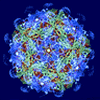 Infectious complications are the major cause of mortality in CLL and affect the quality
of life of most patients. The best practices in managing infections have changed over time,
tracking our knowledge of the molecular mechanisms at work and reflecting the nature of the
therapies used to treat the CLL itself. In our article
Infectious Complications of CLL, we review the latest expert findings.
We also highlight the need for patients to be actively involved in discussing these best
practices with their local oncologists, to ensure that they receive appropriate care.
Infectious complications are the major cause of mortality in CLL and affect the quality
of life of most patients. The best practices in managing infections have changed over time,
tracking our knowledge of the molecular mechanisms at work and reflecting the nature of the
therapies used to treat the CLL itself. In our article
Infectious Complications of CLL, we review the latest expert findings.
We also highlight the need for patients to be actively involved in discussing these best
practices with their local oncologists, to ensure that they receive appropriate care.
Caution on EPO
The Dark Side of Epoetin - Getting Darker
Be Careful What You Ask For !
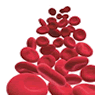 The results of a new meta study have been published in the Journal of the National Cancer Institute.
The authors find additional reasons to question the usage of high doses of epoetin drugs to achieve
"normal" levels of hemoglobin. Biases in earlier studies may have understated the problems.
We present our review in
The Dark Side of EPO - Getting Darker.
The results of a new meta study have been published in the Journal of the National Cancer Institute.
The authors find additional reasons to question the usage of high doses of epoetin drugs to achieve
"normal" levels of hemoglobin. Biases in earlier studies may have understated the problems.
We present our review in
The Dark Side of EPO - Getting Darker.
CLL Complications
Oral Mucositis Can Be Deadly
A Real Pain in the Mouth
 Many CLL patients experience painful sores and infections
in their mouths, especially when they go through chemotherapy.
This incidence of 'oral mucositis' can have serious consequences
to the quality of life and even survival of these patients. There
may be a few things you can do to help yourself - read about them in
A Real Pain in the Mouth.
Many CLL patients experience painful sores and infections
in their mouths, especially when they go through chemotherapy.
This incidence of 'oral mucositis' can have serious consequences
to the quality of life and even survival of these patients. There
may be a few things you can do to help yourself - read about them in
A Real Pain in the Mouth.
AIHA: Auto-Immune Hemolytic Anemia
Important Insight
Causes and Mechanisms - and Strategies to Deal with It
 AHIA affects a significant part of the CLL population, particularly those with advanced disease.
Understanding the causes of the disorder is critical to dealing with it. In
AIHA: Auto-Immune Hemolytic Anemia, we review the relevant
research and make some suggestions.
AHIA affects a significant part of the CLL population, particularly those with advanced disease.
Understanding the causes of the disorder is critical to dealing with it. In
AIHA: Auto-Immune Hemolytic Anemia, we review the relevant
research and make some suggestions.
Dying to Get a Tan?
The Danger of Squamous Cell Carcinoma in CLL Patients
Things You Can Do to Avoid SCC
 If you have CLL, you have a much higher chance of getting squamous cell carcinoma (SCC),
the second most common skin cancer. Further, CLL patients who contract this disease are
more likely to have an aggressive form of the disease. We examine some of the possible
mechanisms for the onset of this cancer and review a number of steps you can take to
protect yourself including a few things you can discuss with your doctor that may help.
Click here to read
Dying to Get a Tan?
If you have CLL, you have a much higher chance of getting squamous cell carcinoma (SCC),
the second most common skin cancer. Further, CLL patients who contract this disease are
more likely to have an aggressive form of the disease. We examine some of the possible
mechanisms for the onset of this cancer and review a number of steps you can take to
protect yourself including a few things you can discuss with your doctor that may help.
Click here to read
Dying to Get a Tan?
The Dark Side of Epoetin
Study Links EPO Drugs to Promotion of Angiogenesis, Tumor Growth and Shorter Survival
The Unanticipated Side Effects of Epoetin
 A very recent study casts light on some negative aspects of epoetin therapy.
In addition to the desired effect of a rapid increase in red blood cells and
hemoglobin and an improvement in quality of life, these drugs have now been
shown in a carefully designed study to promote significant angiogenesis and
tumor growth. Our November 22 article,
The Dark Side of Epoetin, gives you an overview of the
research on this aspect of an important supporting therapy.
A very recent study casts light on some negative aspects of epoetin therapy.
In addition to the desired effect of a rapid increase in red blood cells and
hemoglobin and an improvement in quality of life, these drugs have now been
shown in a carefully designed study to promote significant angiogenesis and
tumor growth. Our November 22 article,
The Dark Side of Epoetin, gives you an overview of the
research on this aspect of an important supporting therapy.
Thrombocytopenia
Introducing Neumega
A Growth Factor for Platelets
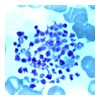 In this article,
Neumega: Treatment of Thrombocytopenia, we discuss a growth
factor for platelets.
In this article,
Neumega: Treatment of Thrombocytopenia, we discuss a growth
factor for platelets.
Splenectomy
Need and Consequences
Surgical Techniques
 A badly infiltrated spleen sometimes has to be removed so that the patient can survive.
In
Splenectomy, we discuss the circumstances in which this procedure
may be applied, its consequences and the surgical techniques used.
A badly infiltrated spleen sometimes has to be removed so that the patient can survive.
In
Splenectomy, we discuss the circumstances in which this procedure
may be applied, its consequences and the surgical techniques used.
Hypogammaglobulinemia
Immunoglobulins and Infections
IVIg Infusions
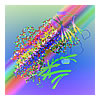 There is a direct link between susceptibility to infection and the level of
immunoglobulins in a patient's body - which in turn is affected by CLL, a
dysfunction of the immune system. In
Hypogammaglobulinemia, we discuss the effects of low
immunoglobulin levels and the use of intravenous immnoglobulin
(IVIg) injections as a treatment for this condition.
There is a direct link between susceptibility to infection and the level of
immunoglobulins in a patient's body - which in turn is affected by CLL, a
dysfunction of the immune system. In
Hypogammaglobulinemia, we discuss the effects of low
immunoglobulin levels and the use of intravenous immnoglobulin
(IVIg) injections as a treatment for this condition.
Drug Induced Complications
Drug Interactions Can Be Complex
Keeping Track of Prescriptions
 Prescription drugs are employed as therapy in a wide range of conditions. They can have
multi-faceted effects and interact in unpredictable ways. They can also induce chronic
and sometimes dangerous conditions in patients. In
Prescription Drug Induced Complications, we examine some of the
problems that can be precipitated by prescription drugs.
Prescription drugs are employed as therapy in a wide range of conditions. They can have
multi-faceted effects and interact in unpredictable ways. They can also induce chronic
and sometimes dangerous conditions in patients. In
Prescription Drug Induced Complications, we examine some of the
problems that can be precipitated by prescription drugs.
Secondary Cancers
CLL Predisposes Patients to Other Cancers
Mutagenic Therapies and Failure of Immune Surveillance
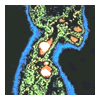 CLL patients have a much higher risk of being diagnosed with certain secondary cancers
than the population in general. Our article titled
Secondary Cancers takes a detailed look at this aspect of CLL.
CLL patients have a much higher risk of being diagnosed with certain secondary cancers
than the population in general. Our article titled
Secondary Cancers takes a detailed look at this aspect of CLL.
Viruses and Viral Drivers
A Vicious Cycle
Dangerous Interaction between CLL and Viruses
 For many CLL patients, a compromised immune system can permit the activation of long-dormant viruses, which in turn can result in a higher level of inflammation and a rapid escalation of the CLL tumor load. This risk is particularly high when immunosuppressive agents are used to treat the CLL: so much so that when certain agents like Campath are used to in the treatment, prophylactic antiviral medications are now routinely used. Read Viruses and Viral Drivers to learn about the cast of characters in the viral underworld and how the tenuous balance between the immune system and dormant viruses can be upset by the cancer or the therapies for it.
For many CLL patients, a compromised immune system can permit the activation of long-dormant viruses, which in turn can result in a higher level of inflammation and a rapid escalation of the CLL tumor load. This risk is particularly high when immunosuppressive agents are used to treat the CLL: so much so that when certain agents like Campath are used to in the treatment, prophylactic antiviral medications are now routinely used. Read Viruses and Viral Drivers to learn about the cast of characters in the viral underworld and how the tenuous balance between the immune system and dormant viruses can be upset by the cancer or the therapies for it.
The following is a short earlier article on cancer related hypercalcemia.
Hypercalcemia
A Life Threatening Condition
Date: 3/18/03
by Chaya Venkat
My thanks to a member who identified the following two useful and authoritative links to information on hypercalcemia.
The first, from the National Cancer Institute:
http://www.meb.uni-bonn.de/cancer.gov/CDR0000062810.html;
and another with technical information and emergency treatment guidelines,
provided by eMedicine.com (from Web MD): http://www.emedicine.com/emerg/topic260.htm. As usual, a casual search of the web for 'hypercalcemia" will lead to all manner of corporate sites, seeking to peddle their wares. I am sure you will approach those with your customary skepticism.
Both of the above are excellent sites from credible sources for getting a quick handle on calcium levels in your blood and what can happen if they get too high.
A couple of actionable items that jump out from both sources:
 Enter Keywords: |
———
Disclaimer: The content of this website is intended for information only and is NOT meant to be medical advice. Please be sure to consult and follow the advice of your doctors on all medical matters.
Copyright Notice:
Copyright © 2024-2007 CLL Topics, Inc. All Rights Reserved.
All materials contained on this site are protected by United States copyright law and may not be reproduced, distributed, transmitted, displayed, published or broadcast without the prior written permission of CLL Topics, Inc. You may not alter or remove any trademark, copyright or other notice from copies of the content.
However, you may download and print material from CLLTopics.org exclusively for your personal, noncommercial use.
———
